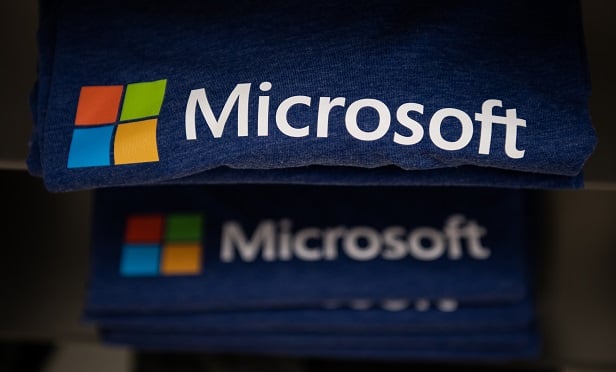
 (Photo: Mark Kauzlarich/BB)
(Photo: Mark Kauzlarich/BB)
Microsoft Corp. is releasing a service to help health care companies move vast amounts of patient data to its cloud and connect with other related systems in a bid to offer clinicians, individuals and researchers a more comprehensive view of patient health.
The tool, based on Microsoft's Azure cloud platform and a national standard for exchanging health records, will let disparate health systems talk to each other, for example hooking up patient records with pharmacy systems, fitness devices and others more seamlessly.Health care lags behind some other industries in moving data to internet-based storage, and while health records have mostly gone digital, they are often stored in different databases that can't share information easily.
That makes it hard to create systems that use new artificial intelligence and data analysis techniques to track patient well-being and find new targeted therapies. A better-connected health care system would provide clinicians with more complete profiles of their patients, researchers with more data to study and individuals with more information to take control of their health, according to Microsoft. It's also an attempt to help Microsoft attract companies to Azure over market leader Amazon Web Services.
Microsoft will also continue to add new health care tools to Azure, said Peter Lee, vice president of Microsoft Healthcare, in an interview. "It's hard to think of data standards for interoperability as a sexy topic," he said, but it's critical to a host of new healthcare applications.
The software giant has been pushing into health care in fits and starts over the past several years. Recently it has been working on cloud and artificialintelligence products to help reduce data-entry tasks for doctors, triage patients and provide more-targeted cancer care. Last month, Microsoft announced an Azure deal with Walgreens Boots Alliance Inc. The drugstore company said it will use Azure for services that connect patients' health care data with clinicians and pharmacists, among other things.
To be successful in health care, Microsoft must train its software and artificial intelligence tools to be familiar with medical needs and terminology and must comply with a complex set of privacy requirements around healthcare data. Microsoft will announce the new Azure service next week at the HIMSS healthcare conference in Orlando, Florida. One example the company will show is using the service to create an app for scheduling hospital nurses. Microsoft also plans to announce about three dozen organizations that are already trying the new tool, Lee said.



